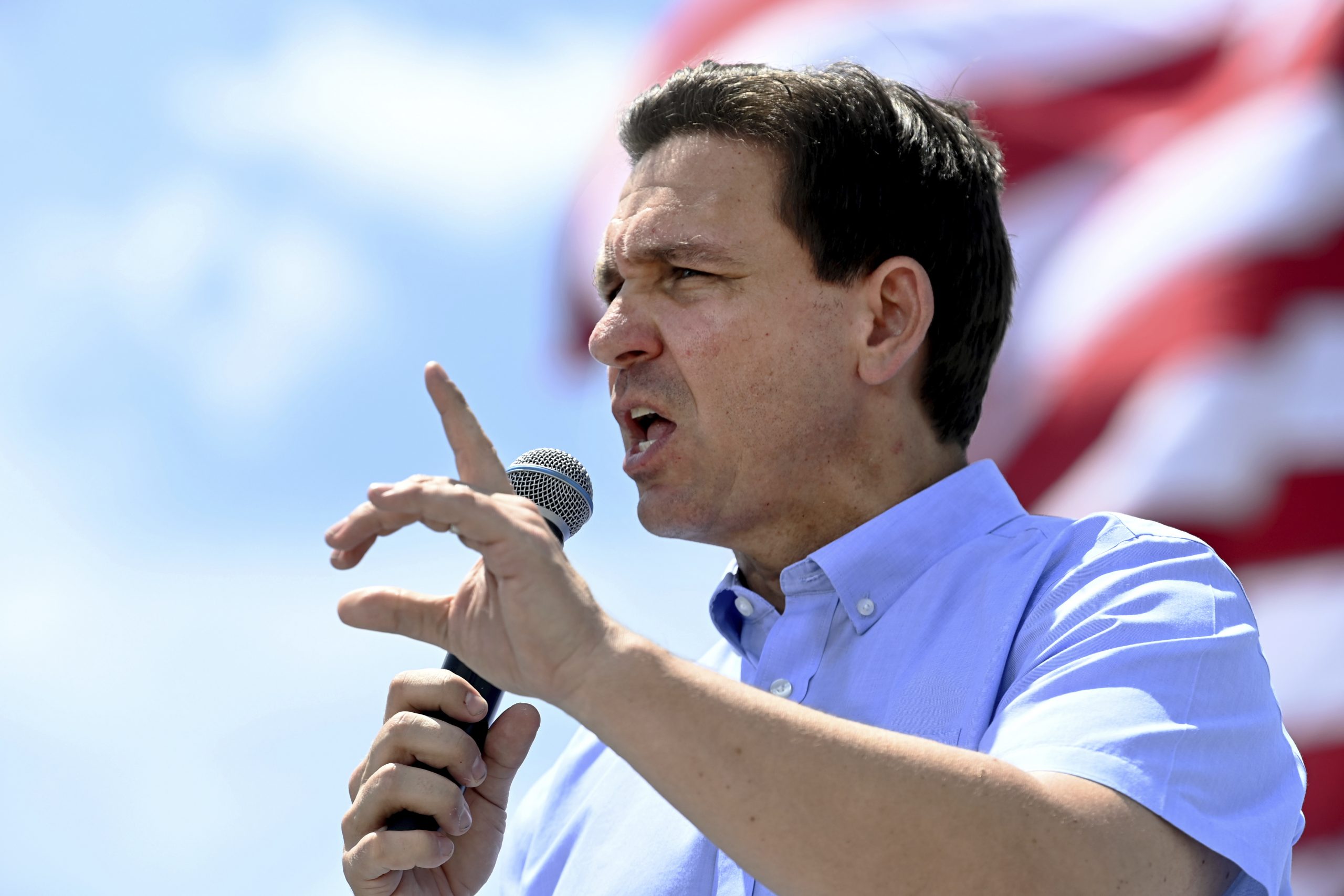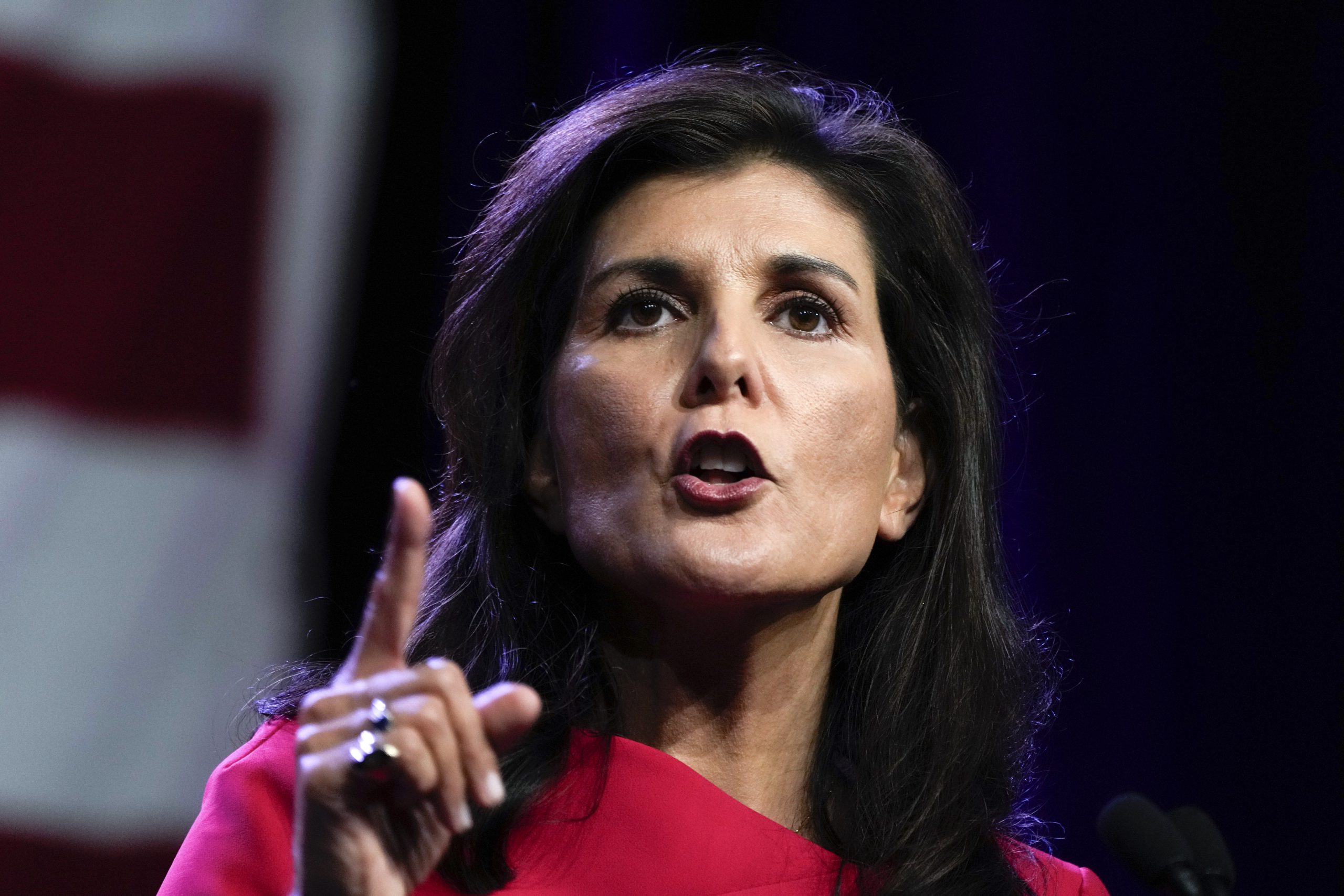The first Republican presidential debate is fast approaching on Aug. 23, when candidates will hope to close the gap on former President Donald Trump and separate from the rest of the pack. In this series, Up For Debate, the Washington Examiner will look at a key issue or policy every day up until debate day and where key candidates stand. Today’s story will examine their stance on crime.
Republicans have intensified their focus on crime and public safety this year, accusing Democrats of putting the public at risk over liberal measures that favor reform policies over prison. It’s one of the few topics that party strategists believe can sway independent voters and reenergize Republicans.
While crime-heavy campaigns have been part of the GOP playbook for decades, former President Donald Trump upped the ante in 2020 by tying Democrats to the Black Lives Matter movement and vilified them by claiming they wanted to defund and dismantle local police departments.
VIVEK RAMASWAMY TOUTS ‘AMERICA COMES FIRST’ FOREIGN POLICY PLANS AT NIXON LIBRARY
Republicans ran exhaustive ads in the suburbs and other places that saw widespread protests or violence over racial injustice during the midterm elections. The GOP won control of the House, in part, by pledging to tackle crime and battering Democrats with a “soft on crime” label.
Last year, the Republican National Committee singled out New York, along with 14 other large Democratically-run cities, claiming they set record highs for homicide.
According to a Pew Research poll, about 61% of registered voters said violent crime was “very important” when making their decision at the ballot box, putting it on par with healthcare. It also found about 73% of Republicans and GOP-leaning registered voters saw violent crime as a key concern compared to Democratic voters and that distress over crime resonated with older voters more than younger ones.
Alex Conant, a GOP strategist who worked on Sen. Marco Rubio’s (R-FL) 2016 campaign, said crime is a matter that has evolved with voters over the past few years.
“After the ‘defund the police’ movement, Republican primary voters want candidates who are going to be tough on crime,” he said.
Donald Trump
While the former president has been busy stacking up criminal indictments of his own, he has a lot to say about violent crime in the United States and how only he can fix it.
If he is reelected president, Trump claims he will “revitalize police departments and reclaim safety, dignity, and peace for law-abiding Americans” by increasing funding to hire, train, and, in some cases, retrain police officers. He said he would also increase protections for those in law enforcement, such as strengthening qualified immunity, a doctrine that protects officers from individual liability unless they egregiously violate an established constitutional right.
He will also stiffen penalties on assaults of law enforcement officers and pledged to “put violent offenders and career criminals behind bars” and send more “federal prosecutors and the National Guard into high-crime communities.”
Even though Trump talks a tough game, there are some things that may come back to haunt the self-proclaimed “law-and-order” candidate.
In 2018, he signed the First Step Act, a bipartisan criminal justice bill that reduces some mandatory minimum sentences, opens new pathways for compassionate release, and makes technical changes on how people in federal prison could earn time off for certain good behavior. It also modifies laws on specific prison conditions, such as shackling a pregnant prisoner during childbirth.
Trump was so proud of stamping his signature on the law that his 2020 presidential campaign forked over millions of dollars to air a Super Bowl ad boasting the accomplishment, claiming, “Politicians talk about criminal justice reform. President Trump got it done.”
The problem for Trump is that since then, the GOP has significantly hardened its stance on reform, and the ex-president may have to defend his initial embrace of it.
In June, he struggled to wed his support of the law with comments about drug dealers deserving the death penalty. He was noticeably caught off guard when Fox News host Bret Baier told him this year that the death penalty he advocates could apply to Alice Johnson, a woman whose sentence he commuted in an August 2020 Oval Office ceremony and whose face was used in his 2020 Super Bowl ad.
Another great Baier moment when Trump is bragging about freeing drug dealer Alice Johnson and Baier points out that Trump now vows to execute all drug dealers. pic.twitter.com/UeXWUzKQQD
— Helen Kennedy (@HelenKennedy) June 20, 2023
Trump pardoned Johnson following a White House visit from reality star Kim Kardashian, who pushed for her release.
“We’re giving Alice a full pardon,” Trump said at the time. “That means you can do whatever you want in life. Just keep doing the great job you’re doing.”
Trump’s exchange with Baier highlights his vulnerability on crime and could hand his Republican rivals the ammunition they need to go after him.
Ron DeSantis
Gov. Ron DeSantis (R-FL) is trying to show voters how much tougher he is on crime than his Republican challengers. In June, he vetoed a bipartisan measure that would allow some adult prisoners to expunge their criminal records, shocking state lawmakers who worked across the aisle to get the legislation across the finish line.
In May, DeSantis made one of his boldest moves to date, claiming he would repeal Trump’s First Step Act, even though he supported a similar measure as a congressman.
He also made headlines for publicly punishing two Democratic prosecutors and fundraising off of it.

In August, he suspended Orlando State Attorney Monique Worrell, citing neglect of duty. A year earlier, he took Tampa-area prosecutor Andrew Warren to task after Warren indicated he wouldn’t file charges under the state’s 15-week abortion ban. Both publicly elected lawyers were backed by Democratic megadonor George Soros. DeSantis boasted in fundraising emails that he was able to take down a “Soros-backed prosecutor.”
Like Trump, DeSantis supports qualified immunity for police officers. He also believes police officers should be allowed to use military-grade equipment and that the government should be permitted to hire private companies to run prisons.
Tim Scott

The South Carolina senator has become one of the chief negotiators on police reform in the upper chamber of Congress but faces criticism for backing bills in the past that seem more in line with Democratic ideologies than Republican, including one that would withhold federal funds from police departments. He also advocates the increased use of body cameras and the tracking of police shootings.
Following a series of police shootings of black men in Dallas, Scott, who is black, broke with a majority of Republicans and said while he “thanked God” he’s never had to endure bodily harm, he has “felt the pressure applied by the scales of justice when they are slanted.”
“I have felt the anger, the frustration, the sadness, and the humiliation that comes with feeling like you are being targeted for nothing more than being just yourself,” he added.
Following the 2020 murder of George Floyd, Scott was key in building “a comprehensive package in the United States Senate that focused on police reform, transparency, and accountability.” The JUSTICE Act, which would have also made lynching a federal crime, was blocked by Democrats who argued it didn’t adequately address police misconduct or reform.
Scott believes nonviolent offenders should not be released from jail to reduce overcrowding and does not agree with Trump that drug traffickers deserve the death penalty, but he does support mandatory minimum sentences for people charged with drug possession.
Nikki Haley

Two years after claiming she wouldn’t run against Trump, the former South Carolina governor announced her candidacy, declaring voters need to send a “bada** Republican woman” to the White House. As governor, Haley chalked up some impressive wins on crime. In 2015, she signed the first body-camera bill for law enforcement in the country after Walter Scott, an unarmed black man, was shot in the back and killed by North Charleston police officer Michael Slager during a routine traffic stop.
.@NikkiHaley on Friday talked up her experience as a lawmaker and U.N. ambassador, telling the influential @Moms4Liberty group that in order to “save” America, “we need to send a badass Republican woman to this White House.”https://t.co/0ieZUh8Ev0
— Washington Examiner (@dcexaminer) July 3, 2023
In May, Haley called on Gov. Kathy Hochul (D-NY) to pardon Marine veteran Daniel Penny, who put Jordan Neely, a 30-year-old homeless man, in a fatal chokehold on the subway. Penny said Neely was antagonizing other subway riders, shouting at them and trying to solicit money.
“Really, what I think needs to happen — the governor needs to pardon Penny,” Haley said on Fox News. “No question about it. She needs to pardon him right away. It’s the right thing to do.”
Haley added that if Penny isn’t pardoned, “criminals will continue to rule the streets of New York because they will know that there is no accountability for anyone who tries to stop them.”
But not all of Haley’s claims on crime have checked out.
She has repeatedly said that crime is at an all-time high despite being fact-checked during a CNN town hall in June and on the campaign trail.
Vivek Ramaswamy
The son of Indian immigrants, Ramaswamy, who had a short-lived rap career while at Harvard University, supports qualified immunity for police officers, believes law enforcement should be required to wear body cameras for their own protection, supports mandatory minimum prison sentences for drug possession, and advocates abolishing police unions.
He also believes it’s OK for juvenile detention centers to use solitary confinement as a punishment and says felons should have their right to vote restored after completing their sentence.
CLICK HERE FOR MORE FROM THE WASHINGTON EXAMINER
Others
Former Vice President Mike Pence expressed skepticism in June over Trump’s First Step Act, telling the Washington Examiner the “time has come for us to take a step back from the First Step Act.” Despite his new view, he touts criminal justice reforms he made when he was governor of Indiana, which combines measures to “introduce faith-based programs to break the cycle of recidivism with tougher penalties on serious crime.”

